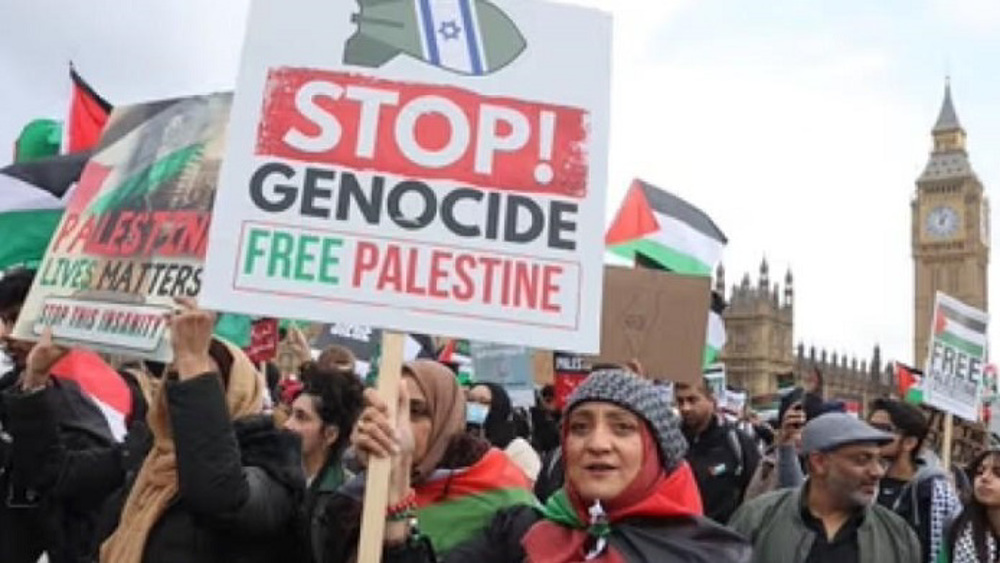Most Britons don’t feel represented by political parties amid Brexit chaos: Poll
Most British voters feel they are not properly represented by the existing political parties in their country, according to a new poll on the political divisions caused by the UK’s pending exit from the European Union (EU).
The survey by campaign group Hope Not Hate found that the disconnect had grown to include 67 percent of people, compared to 60 percent six months ago, when Prime Minister Theresa May was negotiating a withdrawal agreement with the EU.
Most of the participants said they were “overwhelmingly bored” by the divorce process while many felt UK politicians were keeping them in the dark over the issue.
Around 62 percent believed that Brexit was fueling prejudice and division within the country and taking it “backwards”, up from 57 percent in July 2018.
Read More:
The survey revealed that only 20 percent of Brits could trust the Tory government’s pledges to deliver a “good Brexit” while 66 percent of pro-Brexit voters and 75 percent of pro-EU voters said they did not trust the government.
“People are overwhelmingly bored of Brexit,” the campaign said. “But people are not choosing to switch off from the process. They know this is important. People feel bombarded with information which does not make sense, but also frustrated that had things have not been explained to them in a way that was accessible or that resonates.”
The poll also recorded an increase in public pessimism about the future as only a small proportion of the participants thought Brexit would address the causes that prompted more than 52 percent of voters back the exit in the 2016 EU referendum.
With May’s Brexit efforts in tatters after a crushing vote against her draft agreement with the EU earlier this month, 42 percent of the participants in the vote said the UK needed to delay the March 29 deadline by a few months to avoid further division and agree on the best possible option.
“A new approach is needed to avoid a lasting, damaging, split in the country. Open divisions have emerged thanks in part to the government’s handling of the situation, and there is now a huge distrust in politicians, and politics, which could be very dangerous. Meanwhile, a small but organized far right is busy behind the scenes trying to weaponize Brexit divisions,” Hope Not Hate’s chief executive Nick Lowles said.
Tortured body of abducted Syrian cleric found in Damascus outskirts
UFC legend Khabib Nurmagomedov accuses US airline of racism after being deboarded
Israel turns hospitals into mass graves in ‘hellish’ north: Gaza Health Ministry
Israel heavily bombs Lebanon in new violation of truce with Hezbollah
Jan. 12: ‘Axis of Resistance’ operations against Israeli occupation
Gaza’s GDP plummeted by 82% amid Israel's genocide, statistical data show
Iran Army unveils ‘daunting’ laser-powered air defense system guarding nuclear sites
VIDEO | 1,000 strategic, anti-fortification drones join Iran Army arsenal











 This makes it easy to access the Press TV website
This makes it easy to access the Press TV website